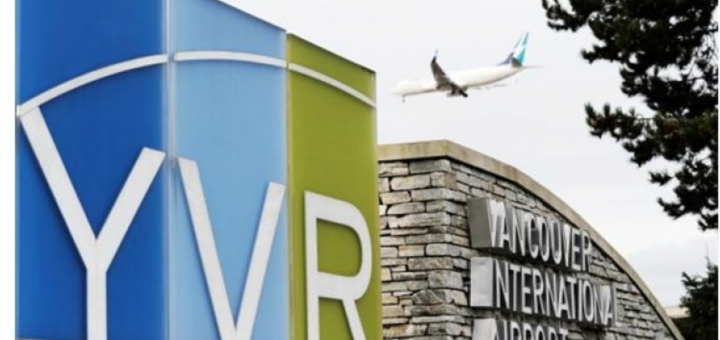Vancouver Airport Authority v Commissioner of Competition: “Public Interest” Privilege Comes Crashing Down to Earth

“Privilege” is a common-law doctrine that prevents the compulsory disclosure of documents or information that is against the public interest.
As Justice L’Heureux-Dubé explains: The doctrine of privilege acts as an exception to the truth-finding process of our adversarial trial procedure. Although all relevant information is presumptively admissible at trial, some probative and trustworthy evidence will be excluded to serve other overriding social interests (A. (L.L.) v B. (A.), [1995] 4 SCR 536, para 33, emphasis my own).
For years, Canada’s Competition Bureau (the “Bureau”) has benefitted from the ability to assert a “public-interest” privilege on a class-wide basis, effectively preventing respondents from accessing entire classes of documents obtained by the Bureau over the course of an investigation. The overriding public interest cited is the idea that informants to the Bureau will know that what they say will be held in confidence.
The recent case of Vancouver Airport Authority v Commissioner of Competition, 2018 FCA 24 [VAA, FCA], eliminates this wide-reaching right to privilege. While the Competition Bureau can still invoke public interest privilege, it can now only do so on a “document-by-document” basis rather than on a “class-wide” basis.
Below, I will explain why this seemingly obscure ruling about evidence production has very real-world effects—and why this is a win for those accused of anti-competitive behaviour but a loss for consumers.
What Secrets Can the Competition Bureau Keep?
In September 2016, the Bureau took action against the Vancouver Airport Authority (“VAA”) for anti-competitive conduct in The Commissioner of Competition v Vancouver Airport Authority, 2017 Comp Trib 6 [VAA, Competition Tribunal].
For years, the VAA had allowed only two in-flight catering businesses to operate at Vancouver International Airport. The Competition Bureau alleged that such actions constituted an “abuse of dominance” under the Competition Act, RSC, 1985, c C-34 [Competition Act]. The Bureau argued that such actions result in a substantial prevention or lessening of competition, leading to higher prices, dampened innovation and lower service quality.
Over the course of its investigation, the Bureau was able to obtain a broad array of documents through section 11 of the Competition Act, which grants the Bureau power to order oral examinations, productions or written returns.
Through these orders, the Bureau compelled four in-flight catering firms (two operating at the airport and two who wanted to operate at the airport) to produce a broad array of documents. In total, the Bureau had roughly 11,500 relevant documents in its possession, but was willing to produce fewer than 2,000 to the respondents. Almost all of the remaining documents were withheld on the basis of class-wide privilege in the public interest.
At the Competition Tribunal
Before the Tribunal, VAA asserted that the Bureau’s claims of public interest class privilege were procedurally unfair and prejudiced its ability to defend against the anti-competitive allegations. The Tribunal disagreed with VAA, and upheld the Bureau’s privilege on the basis of a) stare decisis and b) the Bureau’s policy mandate.
On the topic of stare decisis, the Tribunal surmised:
As exceptional as they may be, class privileges have not been declared moribund by the Supreme Court. (VAA, Competition Tribunal, para 118)
And provided further: “I acknowledge that the Commissioner’s public interest privilege is of more recent origin than the other class privileges discussed above. However, the fact remains that it has now been unanimously recognized by the Tribunal and the Canadian courts for some 25 years (VAA, Competition Tribunal, para 120, emphasis my own).”
On the Bureau’s policy mandate, the Tribunal noted: “A class privilege is said to be necessary to allow the Commissioner to exercise his functions under the Act. It is intimately tied to the Commissioner’s mandate and to the very purpose of the Act that the Commissioner is tasked to administer and enforce. In other words, policy considerations stemming from the Commissioner’s mandate under the Act support the existence of a class privilege (VAA, Competition Tribunal, para 59, emphasis my own).”
The Tribunal dismissed the VAA’s motion, upholding the Bureau’s privilege claim. The VAA appealed.
At the Federal Court of Appeal
At the Federal Court of Appeal, the appeal was allowed and the Bureau’s ability to assert class-wide privilege was overturned. Justice Stratas disposed of both the stare decisis argument and the public policy argument on which the Bureau had previously relied.
On the issue of stare decisis, Justice Stratas observed that the cases relied upon by the Bureau were, in reality, cases where the Court had applied a deferential standard of review to the Tribunal’s application of class privilege. As a result, the Federal Court of Appeal had never held that the public interest class privilege was good law. Instead, the case at bar was the first instance where the Court was called upon to review class privilege under the standard of review of correctness, as required for questions of law (see Tervita Corp. v Canada (Commissioner of Competition), [2015] 1 SCR 161, paras 34 and 39; Canada (Commissioner of Competition) v Superior Propane Inc., [2001] 3 FCR 185).
As a result, Justice Stratas was free to analyze the public privilege arguments on its merits. He held that class privilege was an incredibly high standard, opining:
Recently, the Supreme Court has set the threshold for finding new class privileges as high as can be. New class privileges can be recognized only if they are supported by policy rationales as compelling as the class privilege over solicitor-client communications. (VAA, FCA, para 53)
He continued:
The extremely high threshold for the recognition of class privileges means that to date only four have been recognized—legal professional privilege, litigation privilege, informer privilege and settlement privilege. (VAA, FCA, para 56)
Recognizing that solicitor-client privilege was protected by the Charter, the Court rejected the notion that the Bureau’s right to claim class-wide privilege had risen to this high of a standard.
As a result, the Bureau was ordered to claim privilege on a “document-by-document” basis instead—essentially reviewing each document one-by-one and justifying each item it intends to withhold. The Bureau chose not to appeal the ruling.
Practical Concerns and Final Thoughts
While the ruling focused heavily on a technical area of law, the effects will be tangible, simple and real. In my mind, this case undoubtedly represents a win for would-be anti-competitive actors and a loss for everyday consumers.
The Federal Court of Appeal’s decision is likely to cause a significant change to proceedings launched by the Competition Bureau. The requirement to review and justify privilege to the courts on a “document-by-document” basis will be a huge burden for an agency of modest means. Any litigation lawyer that has undertaken a large discovery process would understand this to be true. The real-world effect may indeed be that the agency will be forced to pursue fewer anti-competitive cases to the public’s benefit.
With finite resources, Commissioner John Pecman had focused his term on taking high-impact actions against well-known consumer-facing companies such as Hudson’s Bay Company, Kobo-Rakuten, Ticketmaster and Loblaws. Recently, Commissioner Pecman identified digital economy and innovation as areas of focus during his term and reiterated his emphasis on the vital importance of embracing competition to encourage innovation in Canada. In this vein, the Bureau reported an 80% increase in enforcement cases in the digital sector during its 2016-2017 fiscal year compared with the previous year, and the Bureau’s 2017-2018 Annual Plan suggests that dozens of digital economy cases are still in the investigative pipeline.
The Federal Court of Appeal’s decision binds the Bureau and places it in a difficult situation, contrary to the important public mandate it should be allowed to execute.






Join the conversation